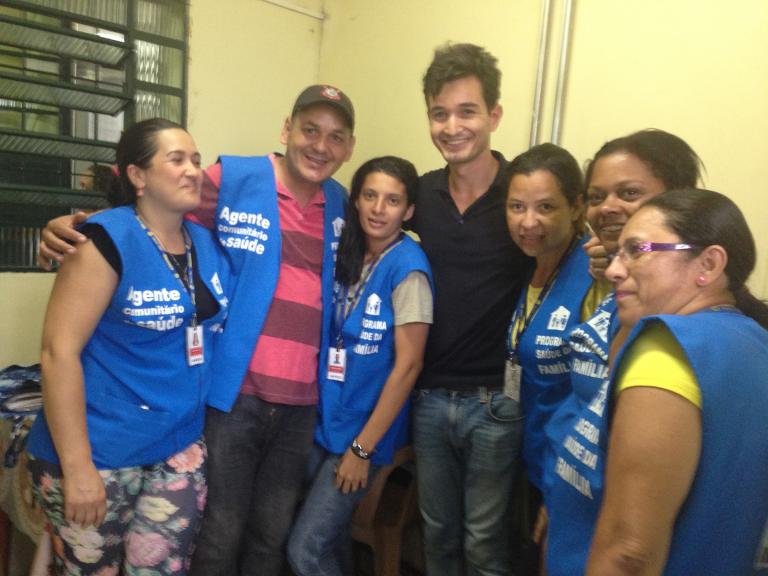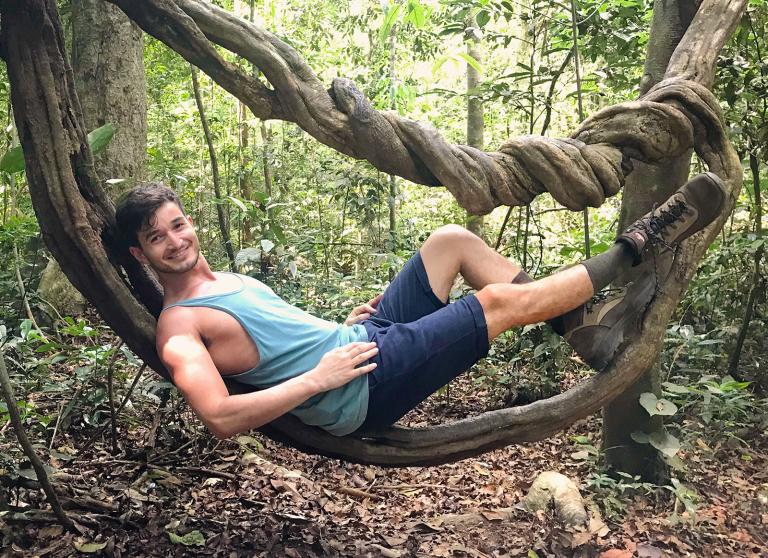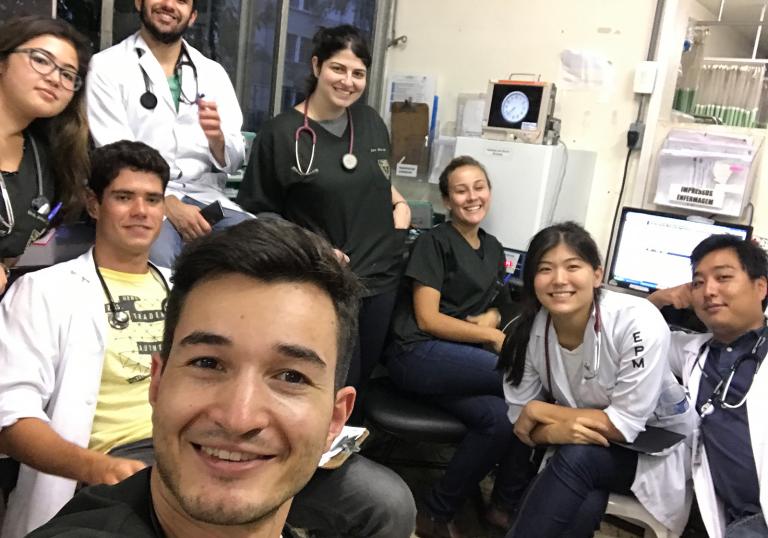The clash between humans and nature that inspires Marc Shamier’s work
Marc is a PhD student at the Erasmus Medical Center in Rotterdam and a project manager for Ecraid’s POS-Disease X study. In our interview with him, he shares about his fascination with infectious diseases, the challenges and rewards of serving an underprivileged Brazilian community, a thrilling encounter with yellow fever, and an outbreak that hit much closer to home.
Eight months after graduating from med school, then-26-year-old Dutchman Marc Shamier moved to Brazil with his partner. It was the adventure of a lifetime for the young doctor who turned down a job at a club for the wealthy to take up a family doctor’s position in a São Paulo favela. Together with a small team, he oversaw the health of some 4.000 inhabitants. A daunting task, but an experience that brought Marc something he was missing in one of the world’s best healthcare systems.
“In a healthcare system where the quality of all professionals and services is guaranteed, you’re part of a team and it’s the system that helps the patient. In the favela, a doctor’s individual impact on the community cannot be overstated. Without a system to blindly rely on, my personal impact on people’s lives was much more tangible. Personally bearing the responsibility for proper treatment for my patients heightened my alertness and creativity. I realised that I could help many of the patients just by listening to them.”

That lack of a reliable system and resources, however, often made Marc’s job tough. Despite his best efforts and improvisational skills, he witnessed tragedies he was simply not equipped to solve.
“Early on, I accepted that things would sometimes be beyond my control. Referring patients to a specialist was next to impossible, so it was more pragmatic to improvise and do what I could with the limited resources at hand. That was a big departure from the Netherlands, where perfectionism tends to prevail over pragmatism.”
Photo: Marc and his team of community health agents at the favela.
Yellow fever
While in Brazil, Marc also did a residency at a dedicated infectious disease intensive care unit at the Federal University of São Paulo. Around that time, the area was hit by one of the largest yellow fever outbreaks in recent memory. More than 2,000 people were infected, and hundreds lost their lives. This was a unique learning opportunity for the young doctor, but it was incredibly taxing, too.
“That was the most emotionally draining situation I had ever worked in. I had to tell parents that their 25-year-old child, who had been admitted in a stable condition the previous night, had not made it till the morning.”
Humans and nature
This close encounter with a devastating outbreak only deepened Marc’s fascination with infectious diseases.
“What captivates me most about infectious diseases is that they are the result of interactions between humans and nature. Take yellow fever. This virus is usually transmitted exclusively from mosquitoes to monkeys. However, when a monkey population decreases due to deforestation and poaching, mosquitoes seek alternative hosts. Everything is connected; bound in a delicate balance we often inadvertently disrupt.”
That last remark gives away an additional, somewhat pessimistic layer of complexity in Marc’s perception of the role of humans in this relationship.
“Much of what we need to learn we already know. Even Disney films like Pocahontas make the message clear: respect nature because you are part of it. Yet people are often focused on short-term gains and very much attached to doing things the ways they always have. And when your livelihood is at stake, looking at the bigger picture becomes even more difficult. For example, the Amazon is being cut down because farmers need additional land to make a living. Within their own context, they probably feel justified by the idea that they are providing for their families in difficult economic times – while ignoring that their actions impact on the planet and indigenous populations.”
Photo: Marc during a hike in a Brazilian rainforest

Policymakers – who, in Mark’s opinion, bear most of the responsibility – often fail to realise our disruptive impact.
“We need to be a more humble. We think that we understand our planet and can manage it, but what scientists know is always an approximation. It is arrogant to think that we can make big interventions in the world while accounting for all potential risks. Our actions have consequences we are simply unaware of.”
POS-Disease X
Marc is currently a project manager for POS-Disease X study running under the EU-funded ECRAID-Base project. This study is part of Ecraid’s pandemic preparedness work.
“During the COVID-19 pandemic we saw that Europe’s scientific efforts could have been even more impressive had there been more coordination and collaboration, and less competition between research institutes. This is what we are trying to achieve by developing an integrated pan-European infrastructure that maximises its resources. We want to help stop the next pandemic before it has a chance to become such.”

But what exactly is ‘Disease X’, you might ask.
“It took many months to decide that ourselves. For our purposes, it is any viral disease with the potential to have a major public health impact. Our goal is to start studying that virus at a very early stage, and to start answering important questions: How does it transmit? How long are people infectious for? How does immunity work and is it durable? How does the virus evolve? Does that impact treatment and long-term immunity? Etc.”
Photo: A group selfie with colleagues during a night shift in the Emergency Room
MPOX outbreak
The Rotterdam-based team didn’t have to wait long for its first chance to act. Early in the international MPOX (formally Monkeypox) outbreak, they realised its disruptive potential and rapidly set up a research collaboration with the Dutch Public Health Service to investigate immunological response to MPOX infection and vaccination.
For Marc, this felt personal.
“This disease might not have as big of an impact as COVID did, but I witnessed first-hand the impact it has had on the gay community, my community. People around me feared the disease as well as stigmatisation and couldn’t wait to get vaccinated. It feels very rewarding to be involved in a project tackling another virus that controls the lives of people who are close to me.”
The results of the MPOX study were recently published in Nature Medicine. Read more about it here.
The 'Purpose-driven, people-centred: The people behind the science' series shines a spotlight on the brilliant scientists and project operatives working on Ecraid’s studies and the activities supporting them. Although you might not hear their names outside of academia, rest assured that their hard work and dedication impact millions of lives affected by infectious diseases and antimicrobial resistance in Europe and beyond.